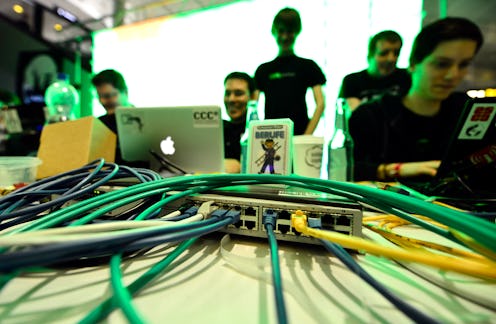The Internet has never really been known to keep anything to itself, and that notion is becoming increasingly and dangerously blatant. Right now, there is a website whose primary purpose is to expose web cam companies for their lapses in security. It freely streams direct feeds from thousands of private IP cameras from all over the world (Thailand, Netherlands, the UK, etc.) to illustrate deficiencies a program might have. So right now, anyone could watch someone’s baby through a baby monitor, the interior of a house or store being recorded for safety reasons, and more. Much more. While this site claims it was designed “in order to show the important of the security settings,” it also features ads. Which means the page is making money and exploiting the individuals and their property. Worst of all, these people have no idea their private information and lives are being breached and streamed. So, where do we cross the line between hacker vigilantly-ism and profiteering?
The page was created when hackers discovered that when people don't change the default passwords on their webcam settings, anyone can just access them. While it’s worthwhile to point out that users should definitely be creating their own unique passwords (as per instructed, probably), this doesn’t mean their recordings should be use for monetary gain unbeknownst to them, obviously. The webcam page claims that if someone comes across their camera feed, they can contact the site admin (I’m guessing) and have it removed. But that’s a big “if” especially since it sounds like thousands of webcams are being streamed and the victims are definitely not being notified. It’s not like the average person owns an app that alerts them every single time a hacker has posted their private videos on to a website. (There's an idea for you if it doesn't exist already, app wizards. You're welcome.)
This all sounds insanely illegal because it totally is insanely illegal. Jay Leiderman, an experienced lawyer who has dealt with hackers before, clarified, “It is a stunningly clear violation of the Computer Fraud and Abuse Act.” It doesn’t matter whether someone’s password is “password” since you're still dealing with “entry into a protected, [private] computer,” says Leiderman.
Systems have been hacked in the past (in fact, a lot of companies hire hackers to do their best to break into secure systems just to see how tightly they're protected) to prove essentially the same point: there are weaknesses in certain programs, and if a hacker can access “private” information, then clearly codes need to be revised. However, this twisted helpfulness isn’t the case here. This site unapologetically exposing peoples’ lives for entertainment and are clearly making a profit off of them. I’m not sure if that’s how it started out, but I guess you might as well kill two birds with one stone, right?
What can we learn from this? Oh, just that technology is getting scarier and scarier and people are getting greedier and greedier, but I’m fairly certain we all knew that anyway.
Image: Getty
